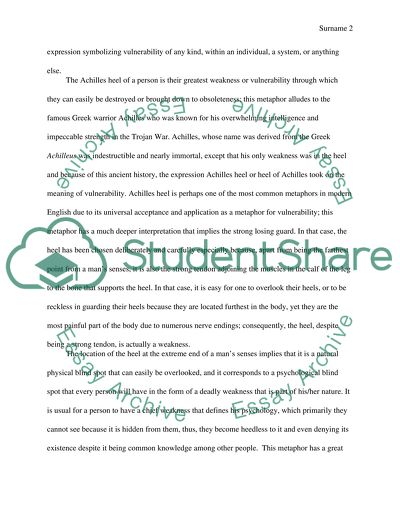Cite this document
(“The Profound Metaphorical Implications of the Achilles Heel Research Paper”, n.d.)
The Profound Metaphorical Implications of the Achilles Heel Research Paper. Retrieved from https://studentshare.org/literature/1488921-metaphor-essay
The Profound Metaphorical Implications of the Achilles Heel Research Paper. Retrieved from https://studentshare.org/literature/1488921-metaphor-essay
(The Profound Metaphorical Implications of the Achilles Heel Research Paper)
The Profound Metaphorical Implications of the Achilles Heel Research Paper. https://studentshare.org/literature/1488921-metaphor-essay.
The Profound Metaphorical Implications of the Achilles Heel Research Paper. https://studentshare.org/literature/1488921-metaphor-essay.
“The Profound Metaphorical Implications of the Achilles Heel Research Paper”, n.d. https://studentshare.org/literature/1488921-metaphor-essay.


